Which Oral Medication Is Available in Liquid
Are you the one who crush tablets and dilute in water? Conventionally, people were practising this method whenever find difficulties in taking solid pills. Modern healthcare and research strive for your convenience! There are various categories of medication types, among them, oral liquid medication is always prioritized. The reason could be many, but the major point is its ease in swallowing than solid dosage formulations.
This article, ‘Which oral medication is available in liquid’ is based on discussion on the major categories available in the market. So don’t rush to crush! Just check the which oral medication is available in liquid.
1.What is oral medication in liquid?
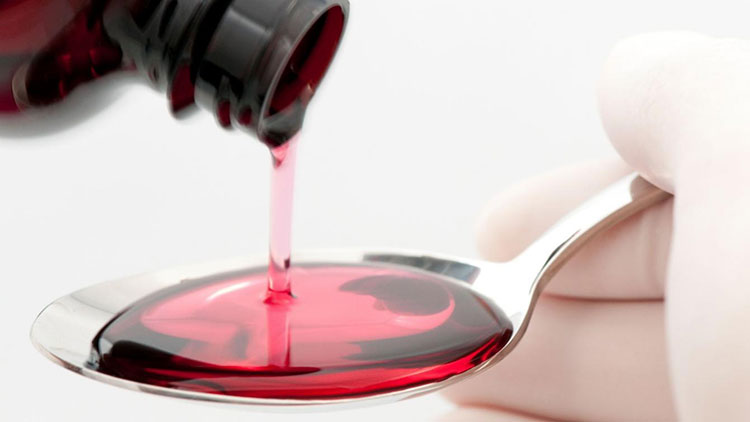
Oral Medication in Liquid
Any pharmaceutical formulation, prepared in a liquid base and taken by mouth, is known as an oral medication in liquid form. There is a diverse range of several forms of oral liquid medications, such as syrups, elixirs, suspensions, solutions and other. The active medicinal ingredients of oral medications in liquid form are either suspended or fully dissolved in a suitable fluid medium to ensure uniform distribution of the drug.
The composition can include water, alcohol, glycerine, or oil, depending on the active/medicinal ingredient’s chemical properties and stability. Such type of liquid medication in oral form is widely administered in paediatric, geriatric, and specialized patient populations and typically measured using calibrated tools like droppers, dosing cups, or oral syringes, which ensures dosage precision and safety.
2.Why do you need oral liquid medication?
The reasons for needs or oral medication available in liquid are described as:
No hurdles in swallowing

Patients Often Refuse Solid Medications- Picture Courtesy: Detinjarije
Oral medications in liquid form eliminate the hassle of chewing, breaking, or crushing hard and coarse tablets. So, if you are someone who has difficulty swallowing capsules or pills, or you know aged individuals or children who have trouble ingesting solid medicines; then these are the best option for you. Nevertheless, oral medication available in liquids are easy to ingest.
No need to Adjust your Dosing
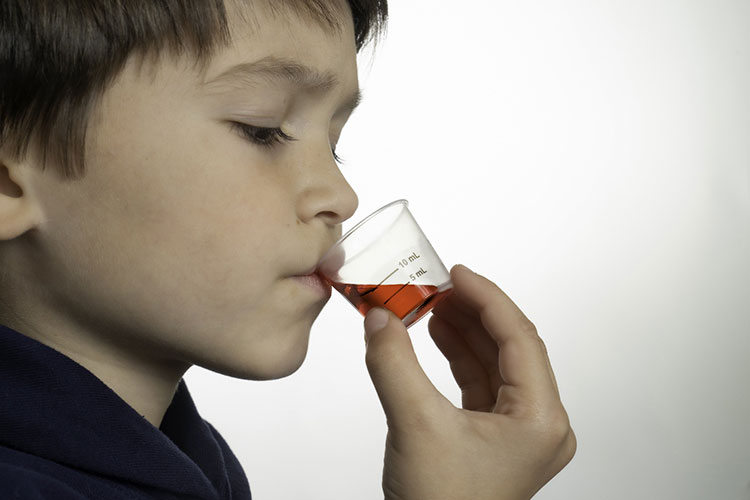
Pre-Measured Doses- Picture Courtesy: GoodRX
Liquid medications offer flexible dosing, which is especially important for children or patients who need frequent dose changes. You can easily adjust the amount based on age, weight, or treatment response.
This flexibility in dosing is very helpful in paediatric care or hormone replacement therapies, as the dose can be easily increased or decreased without affecting the entire product.
Excellent with Bioavailability
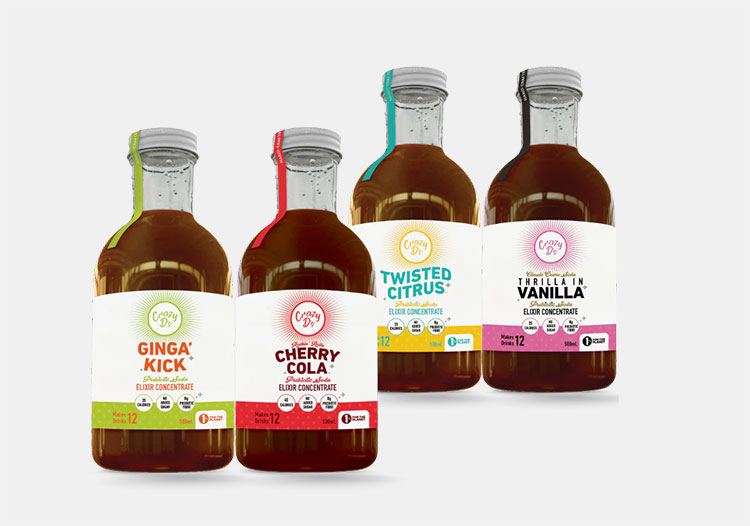
Increased Bioavailability of Liquid Medication
Certain drugs are not fully dissolved in your body when taken as capsules or tablets, meaning their bioavailability is compromised, hence reducing their effect.
When these drugs are administered in liquid form orally, they mix better with the liquids present in your stomach and intestines, getting readily absorbed in the bloodstream, and as a result, a large portion of the drug enters your body, enabling you to get the full benefits of treatment.
Giving a good and Fast Effective Response

Fast Efficacy- Picture Courtesy: The Doctorpreneur
In many critical conditions like high fever, allergies or acute pain, rapid relief is needed, and this form of medication does just that, since the liquid medications is already in a suspended or dissolved state, when taken orally body absorbs them more quickly as the body doesn’t need to break it down unlike a solid tablet, allowing for a faster onset of action and elimination of symptoms.
Variety and Improved Formulations
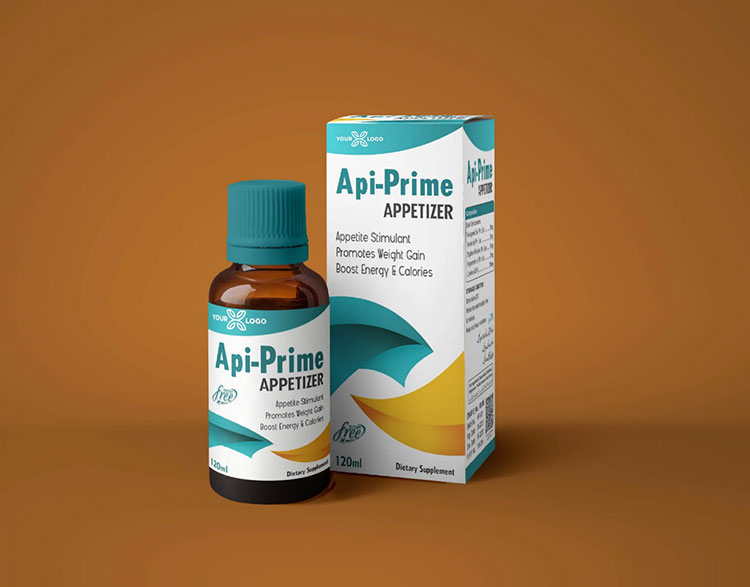
Variety Of Formulations
Liquid medications often contain preservatives, essences, flavours and sweeteners that mask the bitterness of medicinal substances, making them more palatable, especially treatments designed for children or those that require long-term daily intake. The variety of different forms also enables formulators to accommodate multiple drugs that are too bitter or need rapid absorption in the body.
3.Which Oral Medication Is Available in Liquid?
The following below oral medication is available in liquid formulation. For instance:
Syrup
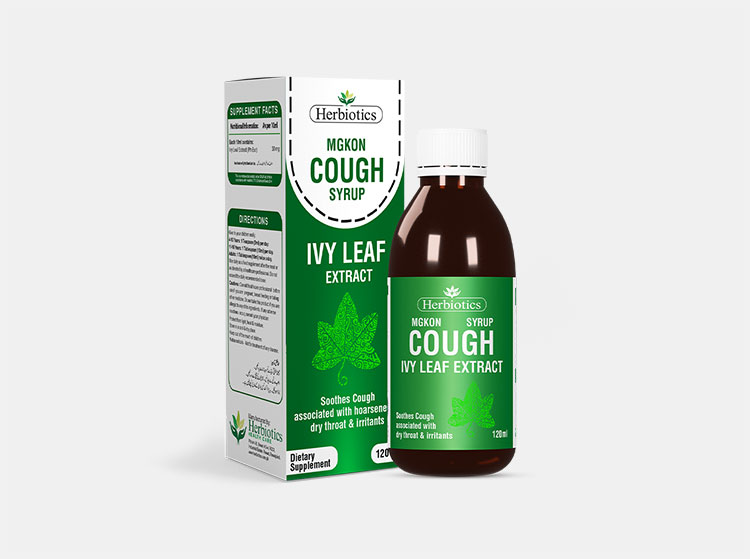
Cough Syrup-Picture Courtesy: Herbiotics
A syrup is a liquid-based medicinal formulation, it has a thick, sweet and viscous texture. Syrup usually consists of active ingredients which are dissolved in a concentrated sugar solution. The sugar makes it easier and appetizing for kids to consume.
This is a homogeneous mixture; their components are completely dissolved throughout the liquid base. The base consists of sucrose, glucose or sorbitol in sugar-free options. Syrups are best for water-soluble medication because their active ingredients are dissolved in water completely.
Due to this complete dissolution, syrups don’t require shaking before use unlike other formulations. Some common examples of syrups include cough syrup, paracetamol syrup, multivitamin syrup and more.
Suspension
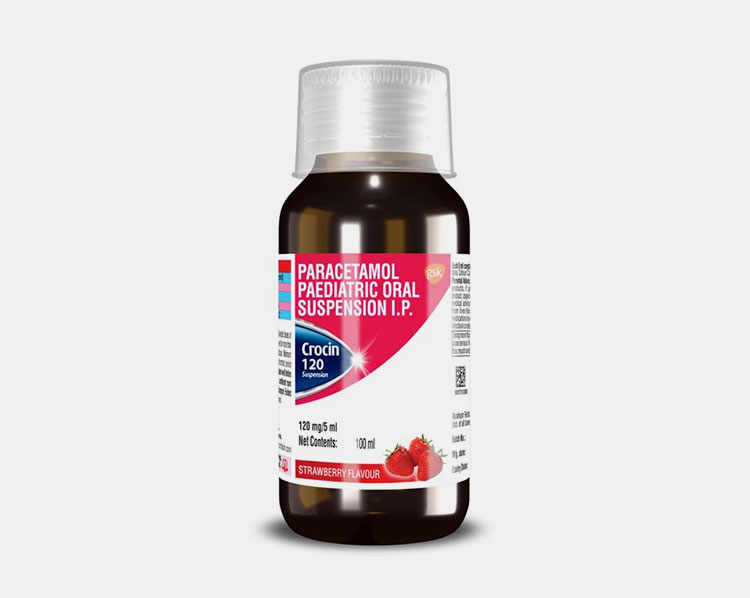
Paediatric oral Suspension-Picture Courtesy: Crocin
Suspensions are liquid formulations in medication in which the solid particles of medicine are dispersed in the liquid base. Due to the undissolved drug particles, suspension have uneven, grainy and cloudy texture and it needs to be shaken well before use.
In suspension formulation, drug particles are not properly dissolved, instead they are dispersed which makes it a heterogeneous mixture. In order to keep the particles suspended for a short period of time, a suspending agent is added to maintain uniform and consistent dosing in each serving.
This is commonly used in antibiotics like amoxicillin suspension, antacid suspension, antifungal suspension and more.
Solution
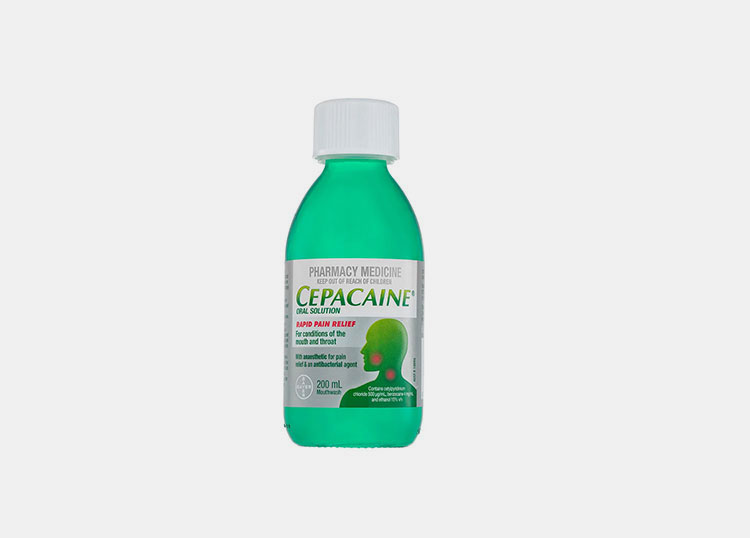
Solution-Picture Courtesy: Zenith Pharmacy
A solution is a clear liquid formulation of medication which doesn’t have uneven or dispersed particles. Solutions are very thin, watery and smooth in texture, active ingredients in solutions are completely dissolved in compatible solvents, mainly water but depending on the solubility level of the drug, it could also be alcohol or glycerine.
The formulation ensure uniform and consistent dosing in every intake, offers flavourful options for better taste making it ideal for infant and kids. In order to increase the solubility of water-soluble drugs co-solvents like ethanol or polyethylene (PEG) are added to the formulation.
The absorption level of solutions is faster since the particles are evenly dissolved. Solution formulation is preferred in paediatric and geriatric patient. some common examples include calcium gluconate solution, magnesium hydroxide solution and multivitamin oral solutions.
Elixir

Elixir
An elixir is a sweetened, clear hydro-alcoholic liquid formulation of medication in which the active ingredients are completely dissolved in suitable solvents like water and alcohol. It has a clear, thin and non-viscous texture, runnier and waterier than syrup. it may contain a mild alcoholic smell and offers flavorful options for pleasant tasting as it includes flavouring agents like sorbitol or sucrose.
It contains a hydro-alcoholic base which is usually a mix of purified water and ethanol, it helps in dissolving accurately both water-soluble and alcohol-soluble ingredients. Also, it has preservatives to prevent microbial growth and contamination. Along with it, stabilizers added to improve and enhance the effectiveness of the solution. common examples of elixir are multivitamin elixirs, chloral hydrate elixirs and more.
Tincture
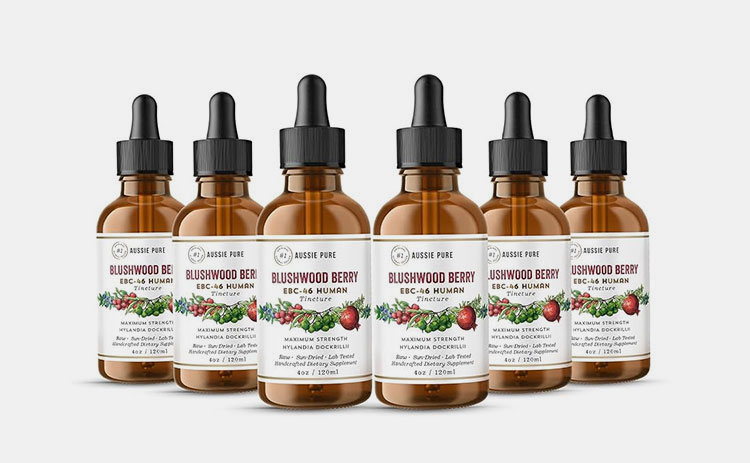
Tinctures
A tincture is a concentrated alcoholic liquid solution of a medication typically prepared either from plant extracts or chemical substances. It has a thin and watery consistency and usually has a dark-colored appearance due to the extraction from plants.
The primary function of a tincture is to extract active compounds from raw materials like roots or herbs. Due to the alcohol presence, it has antimicrobial properties and requires precise and careful dosing.
Basically, they are generally not recommended for children, pregnant women or individuals recovering from alcohol addiction, unless medically prescribed by a healthcare professional.
Common examples of tincture include iodine tincture, tincture of benzoin, tincture of arnica and more.
Emulsion
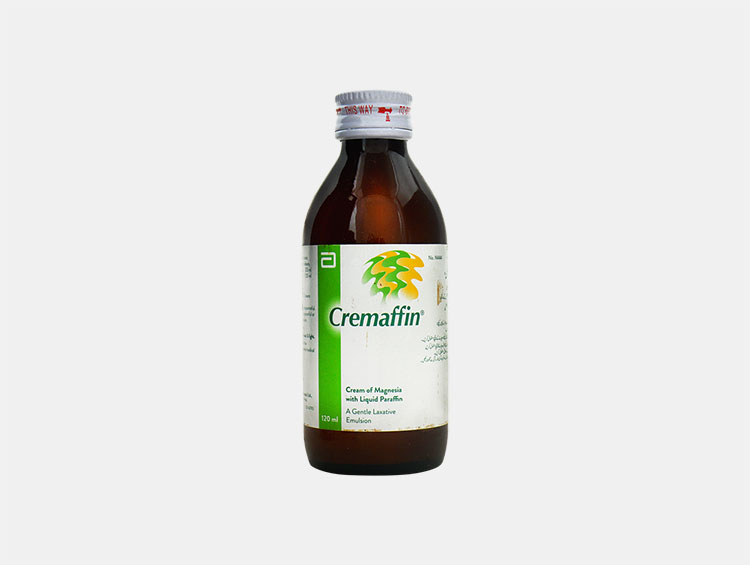
Oral Emulsion
Emulsion is a type of liquid formulation of medication which is made by mixing two immiscible liquids such as oil and water. Tiny droplets of one liquid are dispersed into the other, with the help of an emulsifying agent that keeps the mixture from separating.
This is generally used when the medication is fat-soluble or oily, to make it simpler for the body to swallow and digest. Its texture is usually smooth and milky and appears white.
The two main categories of emulsions are oil-in-water (O/W) and water-in-oil (W/O) and they generally break down over the passage of time, so it is important to shake them before using them. Some of the examples of emulsion are cod liver oil and liquid paraffin.
Linctus
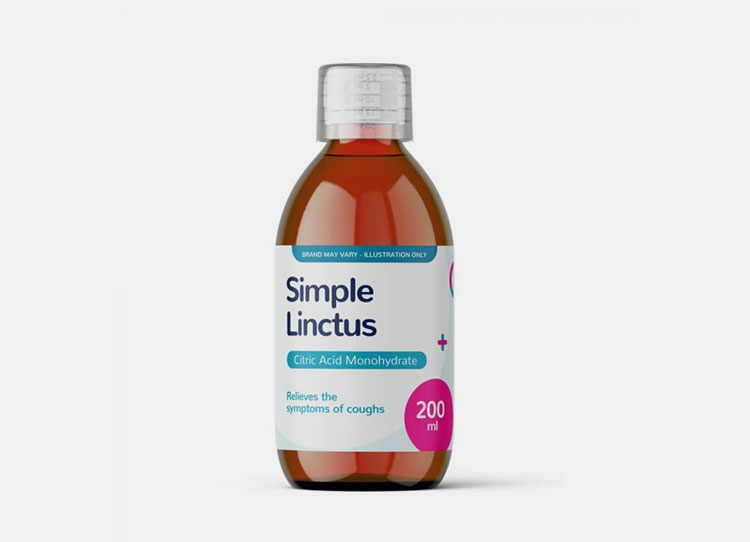
Linctus cough syrup-Picture Courtesy: Chemist4U
Linctus is a type of liquid formulation medication which is taken to cure sore throat and coughs. Its texture is usually thick, sticky and viscous which coats the throat and helps provide relief from dry cough and soreness.
Based on their active ingredients and purpose, linctus can be categorized as expectorant, antitussive, demulcent or combination. It forms a protective layer over the sore throat and helps relieve irritation.
The soothing effect of linctus is from its thick, syrupy texture and flavours such as honey, lemon or menthol. Some examples of linctus include simple linctus, codeine linctus and pholcodine linctus.
Drops (Oral drops)
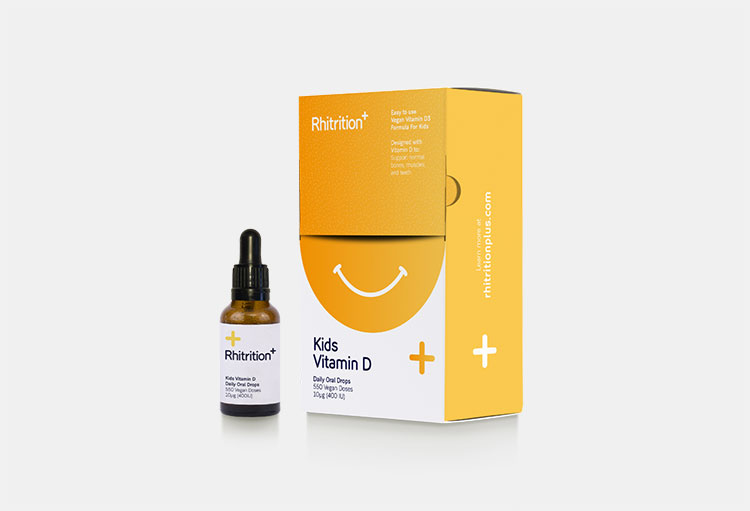
Oral Liquid Drops-Picture Courtesy: Rhitrition
Oral drops are a fluid-based form of medicine designed specifically for dosing in small amounts and drops. They are administered in smaller quantities through a dropper or a dropper bottle, ideally for infants, children and individuals who require low doses of medications.
The texture of oral drops is generally runny and thin, as they are water or oil-based solutions. This formulation ensures extremely precise dosing; you can accurately count the drops which is very critical for specific dosing amounts.
These drops are formulated for immediate absorption, depending on their purpose and ingredients, oral drops can be categorized as antipyretic, analgesic, digestive aids and antibiotics. Common examples of oral drops include paracetamol; colic relief drops and vitamin D drops.
Mucilage
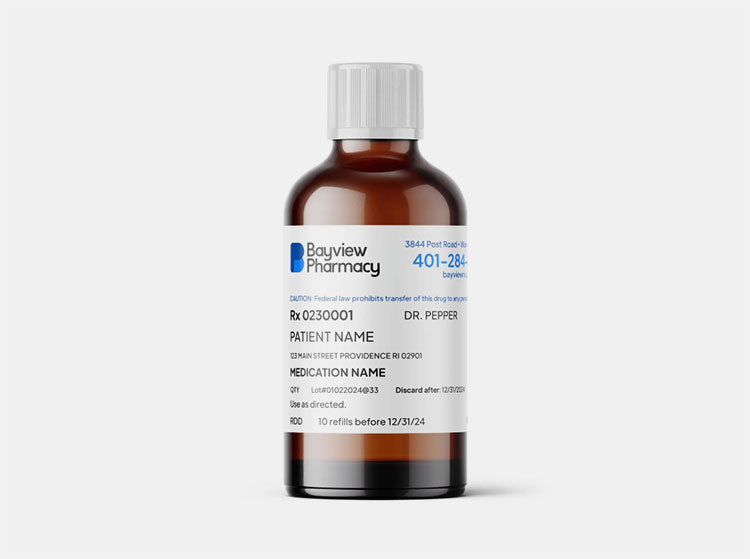
Tragacanth Oral Mucilage-Picture Courtesy: Bayview Pharmacy
Mucilage is a drug formulation in liquid form which has thick, sticky and gel-like texture, it is derived from natural plant-based ingredients. It is primarily used to relieve and soothe irritation in the mucous membranes of the body.
Due to its sticky and viscous texture, it coats the irritated and sore throat for relief. Mucilage is frequently used as a demulcent due to its ability to form a protective layer to relieve soreness and irritation, it is also used as a binding agent in other liquid medications.
Some of the common examples of mucilage are acacia mucilage and tragacanth mucilage.
Conclusion
The oral medication in liquid are becoming tremendously popular as it is preferred by greater number of populations. They are vibrant, viscous, good in flavor and acceptable in taste. Importantly, you don’t need to rush to crush the tablets or pills when it comes to administering oral medications in liquids. Although, according to manufacturing aspects, whenever you’re planning to make them, remember to opt for sanitized and advanced machineries which ensure safe and homogenize formulation. For this purpose, AIPAK ENGINEERING offers excellent solutions in your budget. For queries and purchase, contact us now.
Don't forget to share this post!
CONTACT US
Tell us your raw material and project budget to get quotations within 24 hours.
WhatsApp Us: +86 181 7101 8586
 Tell us your material or budget, we'll reply you ASAP within 24 hours
Tell us your material or budget, we'll reply you ASAP within 24 hours

